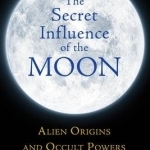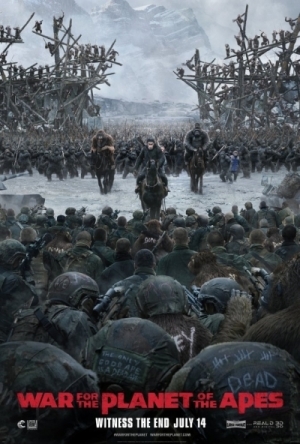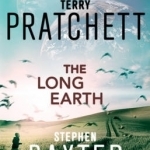
A Plague of Traitors (Leine Basso #11)
Book
A former assassin leads a heroic band of foreign fighters to thwart an enemy like no other. ...
David McK (3695 KP) rated Bill & Ted Face The Music (2020) in Movies
Aug 27, 2021 (Updated Sep 27, 2022)
Man, I feel old.
This is the long-mooted capper to the trilogy, with Bill & Ted's band Wyld Stallyns still waiting for that one song that (as per both 'Amazing Adventure' and 'Bogus Journey') will unite humanity. No, that one at the end of the last film didn't do it.
Now older - but no wiser - and with their kids grown up, the duo find themselves summoned to the future and told that all of space and time will be destroyed if they don't write that song in the next couple of hours.
Cue more time (and afterlife) -travelling idiocy as they decide to steal said song from their future selves, while their daughters also try to put together a band of musical prodigies from throughout history.
Good natured fun, in effect.

Magenta Skies: Rise Of The Berserkers
Book
Our salvation may lie with the unexpected Society is on the brink of chaos, a new threat is...
fantasy science fiction

Father of One
Book
Maka, a young Bosnian soldier, has survived three years under siege. When the enemy forces launch...
War Literary Fiction European Fiction
Andy Meakin (5 KP) rated War for the Planet of the Apes (2017) in Movies
Jan 8, 2018
It has been 15 years since the events of the first film, and the release of the Simian Flu virus that wiped out a large percentage of humanity. The events of the second film saw the start of conflict between the apes and humans, instigated by Koba who defied Caesar’s leadership. Now, humanity are hunting down the apes, with one Colonel (Woody Harrelson) in particular striving to wipe them out entirely. When that Colonel attacks Caesar’s tribe, killing those close to him, it sets the ape leader off on a personal revenge journey, with only a few of his most loyal followers supporting him on the way. However, along the way they encounter two new recruits, an ape hermit who has also developed speech, and a young human girl who is showing signs of a new strain of the Simian virus.
It is a testament to the motion captured performances and the quality of the CGI on offer that at no point during the film do you not believe that the apes on screen are real. There’s a line in the film where Harrelson’s Colonel comments on how human looking Caesar’s eyes are, and whilst you could see that in the context of the film series’ arc (apes are becoming the new rulers, usurping humanity, and so are becoming more human), you can also see it as a nod to how the ‘uncanny valley’ dead-eye stare that plagues CGI in film is entirely absent here. Indeed, given that every scene in this relatively moderate $150million budget film is an effect shot, as apes are present throughout, it is jaw dropping that it looks a far more polished film than, for example, the $265million budgeted Rogue One – a film which tried desperately with two key CGI characters and failed so hard in the brief screen time they had. Over all the Apes series has impressed with the effects work, but here it is pretty much flawless.
But it isn’t all about the effects. In fact the action-packed film the trailers seemed to hint at is instead a thoughtful, character-driven revenge journey, with only short bursts of action. This is Caesar’s dark-journey of the soul, the end result of his attempts to live a peaceful co-existence with a humanity that fears him and his kind. Many comparisons can be drawn to films such as Apocalypse Now (something the film is aware of and manages to drop a reference to as a result), where a troubled individual, tired of war, seeks a crazed Colonel who is amassing his own army for an unknown purpose. The two core leads in their respective roles give their all. Serkis acting to a high degree, and giving genuine life to Caesar, and Harrelson gone completely Brando in his part, menacing without being overbearing.
The journey itself is a compelling story, and the support characters, some who we already know (Maurice, Luca and Rocket) acting as the conscience and the advisers to the troubled Caesar. The new additions, Amiah Miller’s war orphan who Maurice adopts on their journey, and Bad Ape (Steve Zahn) offer heart and comic relief respectively. The comic timing is perfectly placed, never feeling forced, and being deftly used to offer a glimmer of hope and joy in what is otherwise a very dark tale.
The film, overall, nicely rounds out the trilogy, whilst still leaving room for future films down the line. Matt Reeves’ direction makes effective use of his cast and settings, whilst the score by Michael Giacchino has grown more ‘ape-inspired’ since he scored the previous film, reflecting in its drums and pipes the more primate nature manner the world is taking as technology and humanity dwindles.
“Apes together strong!” is Caesar’s mantra. Indeed, all three Apes films, when viewed together, can be seen as one impressive, strong story, with a genuine progression throughout. A third film in a franchise usually derails and loses the way. Not here as this is one of the finest examples of intelligent blockbuster that you will find.
Phil Leader (619 KP) rated The Long Earth in Books
Nov 20, 2019
Joshua Valiente is an orphan who discovers that he doesn't actually need a box to move dimensions - to Step - he is a natural, like a few others before him that have already discovered what becomes known as the Long Earth and have kept it to themselves. Big business isn't slow to take advantage, particularly the huge, powerful and shadowy Black Corporation, whose distributed super computer Lobsang claims to be the reincarnation of a Tibetan mechanic. Together Joshua and Lobsang will discover a few of the secrets of the Long Earth, as well as witnessing the worst it brings out in humanity.
With this central idea, Pratchett and Baxter tell the tales of various people affected by the events of Step Day in very different ways. As with the rest of humanity, the narrative is restless, keen to both rush out and see how far along the Long Earth it can travel and to watch how it turns the Earth we all know on its head. This is a book of wonders, a little like Gulliver's Travels in finding interesting variations to explore.
Those expecting the usual slew of jokes, gags, footnotes and humorous characters that typify his Discworld novels will be disappointed. There are light touches to the situations and characters that betray his hand but this is straight science fiction by two great authors who between them manage to convey the huge scale of thousands - millions - of Earths while still being able to tell the story from a human perspective.

Evil Apples: Dirty as ____.
Entertainment, Games and Stickers
App
"It literally started a riot when I started playing with friends" Evil Apples is a filthy &...
Card game apples to apples cards against humanity dirty rude online

Insurrection: Nevermore Book 1
Book
The virus ran swiftly on the hot summer breeze. Unseen. Unheard. Unknown. It swept through the...
science fiction fantasy

Dead Earth: Combat Shooter 3D
Games and Entertainment
App
Become the last hope of humanity in a dramatic war against rebellious machines. Shoot tons of...

The Secret Influence of the Moon: Alien Origins and Occult Powers
Book
Despite being the most prominent celestial body after the Sun, the Moon has many qualities that...


